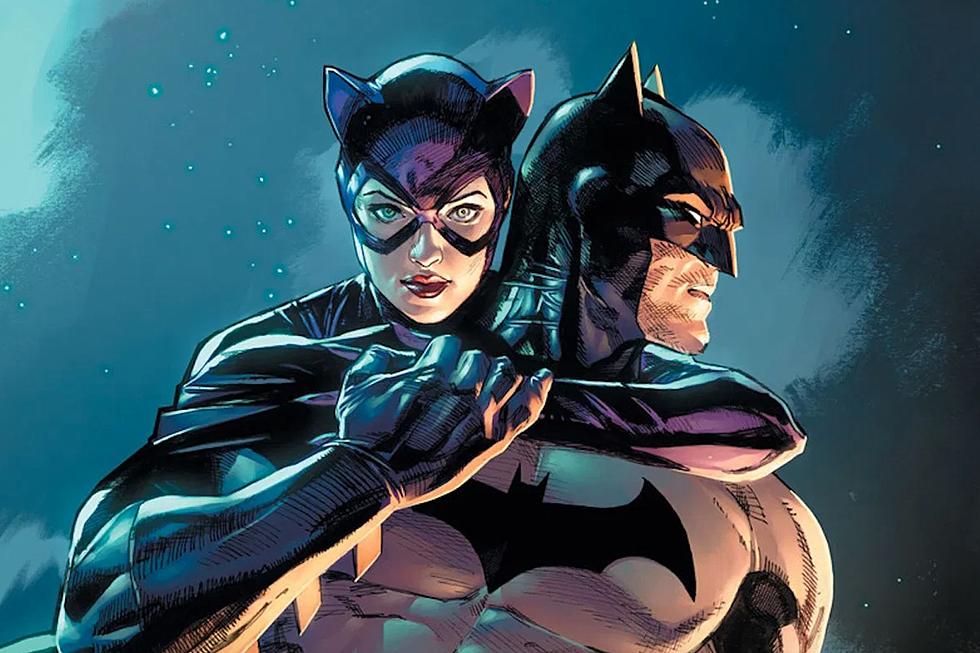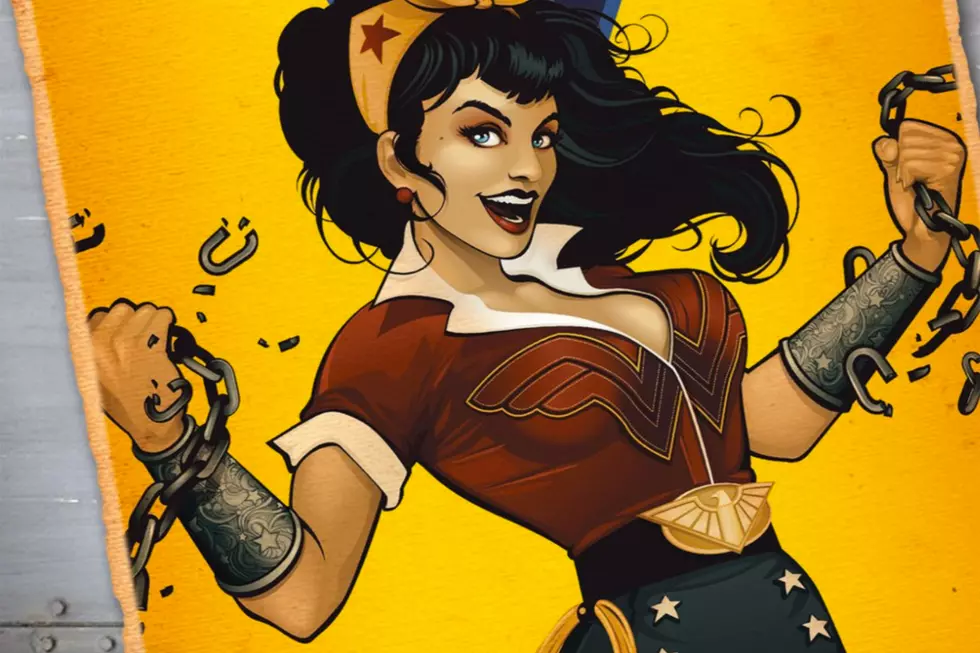
A 1966 Newspaper Predicts a Future Where People Find Meaning In Batman

With so many magazines, newspapers and books from the past archived online, it can often be fun to go back and check out their predictions for the future and see how they stacked up against what actually happened. Usually, they're pretty far off the mark in ways that are both disappointing (we still haven't gotten those flying cars or personal jetpacks) and relieving (we still haven't had a nuclear armageddon either), but there's one story from the past that predicted the future with terrifying accuracy: An article from 1966 claiming that someday, people would obsess over Batman to the point where they actually write articles searching for a deeper meaning in his super-heroic adventures.
To be fair, Rick Du Brow's article stops short of actually including words like "Internet," "Batmanology" or "Chris Sims," but other than that, it pretty much makes Nostradamus look like the chump he was.Released through the United Press International agency on February 1, 1966 (and sent to us by @BatIssues) Du Brow's article is ostensibly a review of the Batman TV show, which debuted on ABC two weeks before. Really, though, it's less a reaction to the show itself than an apparent vehicle for Du Brow to vent his anger over what people might say about it sometime in the future. It's a subject that he seems to be pretty sour on, and the fact that he's this mad over something that has to do with Batman that hasn't even happened yet makes me pretty sure that he also accurately predicted the rise of the Internet message board. I will say, though, it's nice to find someone else who has pretty strong opinions about these dudes.

Mostly, his fury seems aimed squarely at anyone who wants to find deeper meaning in what he dismisses as pure camp:
Somewhere, somehow, in the near future, some sociologist will seek out and find a deep message in ABC-TV's new "Batman" series, and the intended high camp of the show will have reached its zenith. This will happen without doubt, I assure you, so long as there is an academician in the house.
Even now, there are probably scores of these eternally serious souls hard at work designing theories to show that the program is a sign of total regression, or perhaps a revolt in favor of heroic man against the collective machine, possibly engineered by Ayn Rand others of us who liked "The Untouchables."
Will the series be regarded as the plaintive seeking of a worried and internationally-entangled people for gloriously clear solutions which in the long run could translate into gloriously clear diplomacy? Assuredly. Will the academicians then relate this seeking to a form of political belief? Positively. Will they ignore the simple facts of crass commercialism because it would mean passing up a thesis? You bet. Should we ignore them? Without question.
I have to admit that on one level, I can definitely sympathize with what Du Brow's getting at here, which might come as a surprise. As much as I think it's perfectly valid to look for a deeper meaning in pop culture, I can see his frustrations. It's often the case that in an effort to elevate the things they like, fans will look for subtext that just isn't there, hammering at something until it fits their position. Even back then, it was happening all over the place, especially with the sudden resurgence of super-heroes. Just look at the letters Stan Lee and Jack Kirby were getting in the pages of Fantastic Four:

That said, I'm pretty sure that Du Brow's cranky assertion that everyone should just shut up and watch it and anyone who does look for a deeper meaning should be ignored "without question" is more a sign of a cranky newspaperman having up to here with these damn kids today than anything anyone should actually take to heart. But to be fair, I'm a dude who has spent hours upon hours of his life writing about the deeper meanings of mass media Batman stories, so maybe I'm not the most objective party to be refuting Du Brow's claims.
I do think it's worth noting, though, that even Du Brow's frothing sit-down-and-shut-up-about-Batman rage doesn't seem like it can sustain itself for more than a few paragraphs. Halfway through the article, he switches over to quoting some dude writing about how the Hanna-Barbera cartoons and how their attempts at parody and satire meant to appeal to parents become "sardonic and menacing" if you pay attention. Seriously.
Come on, though, Hanna-Barbera cartoons? What kind of mope is going to write about a deeper meaning in those?
More From ComicsAlliance





![Friendly, Wholesome, And Tough: David Hahn And Karl Kesel On The Art Of ‘Batman ’66 Meets Wonder Woman ’77’ [Interview / Preview]](http://townsquare.media/site/622/files/2017/01/B66a.jpg?w=980&q=75)

![‘Batman: Return Of The Caped Crusaders’ Takes ‘Batman ’66’ To The Next Level (And Outer Space) [Review]](http://townsquare.media/site/622/files/2016/10/Caped01.jpg?w=980&q=75)
![Two Iconic Heroes Meet For The First Time In ‘Batman ’66 Meets Wonder Woman ’77′ #1 [NYCC 2016]](http://townsquare.media/site/622/files/2016/10/BMWW.jpg?w=980&q=75)
